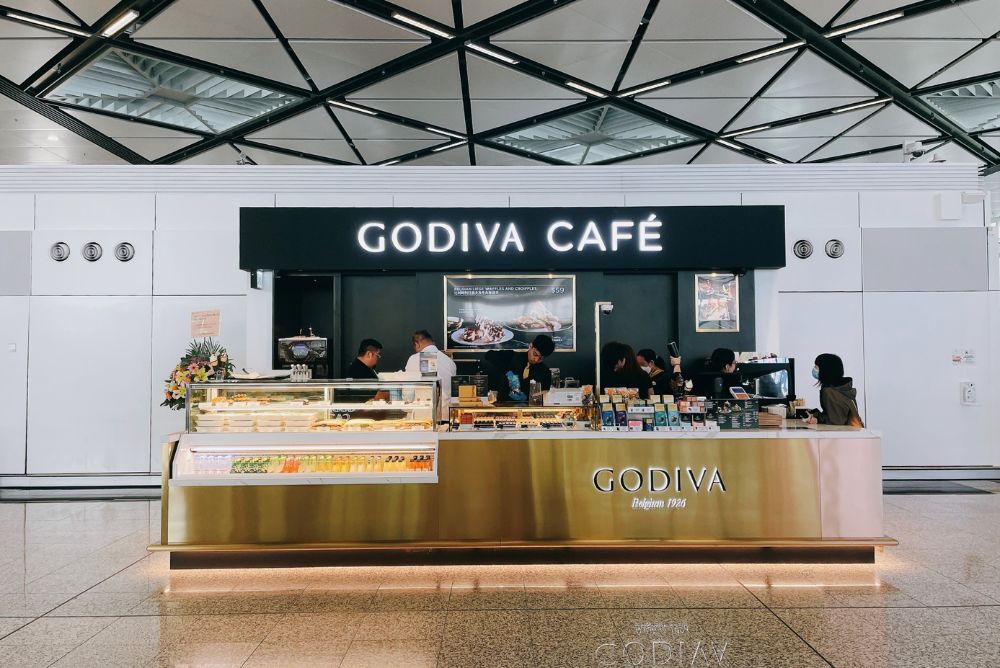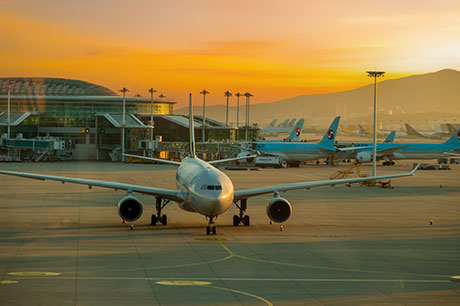Industry addresses attacks on civil aviation
By Doug Newhouse |

ICAO, IATA, ACI and the CANSO all sat shoulder-to-shoulder yesterday to condemn attacks on civil aviation – especially considering recent events.
Significantly, all four organisations met at the invitation of the International Civil Aviation Organization (ICAO) in Montreal, Canada, to discuss appropriate actions to be pursued to mitigate potential risks to civil aviation arising from conflict zones.
The International Civil Aviation Organization (ICAO), the International Air Transport Association (IATA), Airports Council International (ACI) and the Civil Air Navigation Services Organisation (CANSO), jointly released a statement on how they propose to respond to the recent tragic loss of 298 lives onboard Malaysia Airlines MH17, which was shot down over the Ukraine on Thursday July 17.
THE MONTREAL JOINT STATEMENT
Here is that joint statement in full: “The downing of Malaysia Airlines Flight MH17 is unacceptable. Our organizations wish to convey our deepest condolences to the families of the passengers and crew who lost their lives in this tragic event. While aviation is the safest form of transport, the MH17 incident has raised troubling concerns with respect to civilian aircraft operating to, from and over conflict zones.
“We have met at ICAO today with collective resolve to urgently review the issues and potential responses to be pursued. As a first step, States have been reminded by ICAO of their responsibilities to address any potential risks to civil aviation in their airspace.
“We recognize the essential need for information and intelligence that might affect the safety of our passengers and crew. This is a highly complex and politically sensitive area of international coordination, involving not only civil aviation regulations and procedures, but also State national security and intelligence gathering activities.
“All parties to the discussion agreed that ICAO now has an important role to play in working as urgently as possible with its Member States, in coordination with the aviation industry and other bodies within the United Nations, to ensure the right information reaches the right people at the right time.

“THE WORLD’S AIRLINES ARE ANGRY. CIVIL AIRCRAFT ARE INSTRUMENTS OF PEACE. THEY SHOULD NOT BE THE TARGET OF WEAPONS OF WAR. THAT IS ENSHRINED IN INTERNATIONAL LAW THROUGH THE CHICAGO CONVENTION.”
Tony Tyler, IATA Director General and CEO.
FUTURE ACTION PLAN
“Moving forward ICAO with support of its industry partners will:
“Immediately establish a senior-level Task Force composed of state and industry experts to address the civil aviation and national security aspects of this challenge, in particular how information can be effectively collected and disseminated.
“Submit the Task Force findings as urgently as possible to a Special Meeting of the ICAO Council for action.
“Industry has called for ICAO to also address:
“Fail-safe channels for essential threat information to be made available to civil aviation authorities and industry.
“The need to incorporate into international law, through appropriate UN frameworks, measures to govern the design, manufacture and deployment of modern anti-aircraft weaponry.
“ICAO is convening a High-level Safety Conference with all of its 191 Member States in February 2015. Industry and governments stand united and committed to ensuring the safety and security of the global air transport system and its users.”

“DESPITE THE TRAGIC EVENTS SURROUNDING THE DOWNING OF FLIGHT MH17, IT IS IMPORTANT TO REMEMBER THAT AVIATION HAS AN EXCELLENT SAFETY RECORD; THE CONDEMNABLE ACTIONS OF THOSE RESPONSIBLE DO NOT CHANGE THAT.”
Angela Gittens, Director General, Airports Council International (ACI).
‘AN ATTACK ON THE WHOLE INDUSTRY…’
Speaking at the high-level meeting yesterday, Tony Tyler, IATA’s Director General and CEO described the shooting-down of MH17 as ‘an attack on the whole air transport industry’.
He said: “The world’s airlines are angry. Civil aircraft are instruments of peace. They should not be the target of weapons of war. That is enshrined in international law through the Chicago Convention.”
He added: “We are asking ICAO to address two critical tasks. The first, and most urgent, is to ensure that governments provide airlines with better information with which to make risk assessments of the various threats they may face. The second is equally important but comes with a longer time frame.
“We will find ways through international law that will oblige governments better to control weapons which have the capability to pose a danger to civil aviation. Achieving these will make our safe industry even safer,” said Tyler.
In characteristic no non-nonsense style, Tyler added that clear, accurate and timely risk assessment information remains critical. “We were told that flights traversing Ukraine’s territory at above 32,000 feet would not be in harm’s way. We now know how wrong that guidance was. It is essential that airlines receive clear guidance regarding threats to their passengers, crew and aircraft.
“Such information must be accessible in an authoritative, accurate, consistent, and unequivocal way. This is the responsibility of States. There can be no excuses. Even sensitive information can be sanitized and still remain operationally relevant,” said Tyler. He noted that IATA stands willing to assist with the dissemination of such information.
A clear illustration of how governments and organizations can do a lot better was demonstrated in relation to operations at Tel Aviv’s Ben Gurion Airport last week, said Tyler: “The Israeli authorities declared that the airport was safe. The US Federal Aviation Administration told its airlines they could not fly. And the European Aviation Safety Agency provided strong recommendations that European airlines should not fly.
“This is all far from the authoritative, accurate, consistent, and unequivocal information needed to support effective decisions on such an important issue. Governments must do better,” said Tyler.
Tyler also called for ‘better control’ of anti-aircraft weapons and greater measures to ensure that non-State entities find it as difficult as possible to get their hands on them: “We have conventions that address chemical, nuclear, and biological weapons, plastic explosives, and weapons trade generally. But there is no international law or convention to manage them as exists for many other forms of weaponry.
“MH17 shows us that this is a gap in the international system which must be closed. Under ICAO’s leadership, I am confident that we can find ways within the UN system, to augment the international law framework to ensure that states fully understand and discharge their responsibilities in this regard,”

FLYING IS STILL ‘SAFE AND SECURE’
Last, but not least, Tyler also underlined the fact that flying remains safe and secure and the travelling public should know that around 100,000 flights take to the air and land safely every day around the globe and the systems supporting global aviation have produced ‘the safest mode of transportation known to humankind’.
“There is no need for major surgery. But we must identify and close some specific gaps in the system that, however infrequently, lead to unspeakable mistakes and tragedies,” he said.
Airports Council International (ACI) Director General Angela Gittens also echoed the hard work that has already been done with regard to safety and security, while also noting that where possible, processes can and should be refined and enhanced.
“Despite the tragic events surrounding the downing of flight MH17, it is important to remember that aviation has an excellent safety record; the condemnable actions of those responsible do not change that,” she said.
“Nonetheless, there is always room for improvement, specifically when it comes to ensuring that robust intelligence is put in the right hands.
“ACI and other industry stakeholders will tackle this issue just as we have others in the past—collaboratively and transparently—as we continue to ensure the safety of the travelling public.
“Any proposed changes to flight paths necessarily affect airports where slot allocation, fuel uplifts and curfews are concerned. ACI is ready to cooperatively explore effective solutions with ICAO, IATA and CANSO, and today’s meeting was a very positive first step in the right direction.”
TOP IMAGE: Left to right: Jeff Poole, CANSO Director General; Tony Tyler, Director General and CEO, IATA; Dr Olumuyiwa Benard Aliu, ICAO Council President; Raymond Benjamin, Secretary General, ICAO; and Angela Gittens, Director General, ACI.
Alcohol insights: Conversion up, spend down in Q4
Conversion of visitors in the alcohol category in duty free has risen to 54% in Q4 2023,...
Men buy and spend more in travel retail says new research by m1nd-set
Men have a higher conversion rate and spend more when shopping in travel retail, says new...
Saudia Arabia's KKIA unfurls T3 duty free expansion
King Khalid International Airport (KKIA) has unveiled the first stage of its much-vaunted duty...
-
 International,
International,Alcohol insights: Conversion up, spend down in Q4
-

-
 International,
International,Saudia Arabia's KKIA unfurls T3 duty free expansion

In the Magazine
TRBusiness Magazine is free to access. Read the latest issue now.

 Trbusiness. The travel retail Trbusiness. The magazine for global retail and duty free professionals.
Trbusiness. The travel retail Trbusiness. The magazine for global retail and duty free professionals.





















